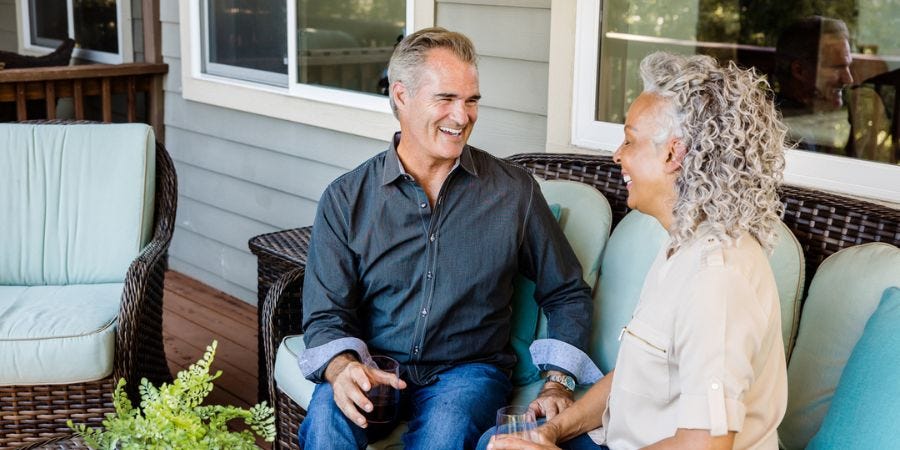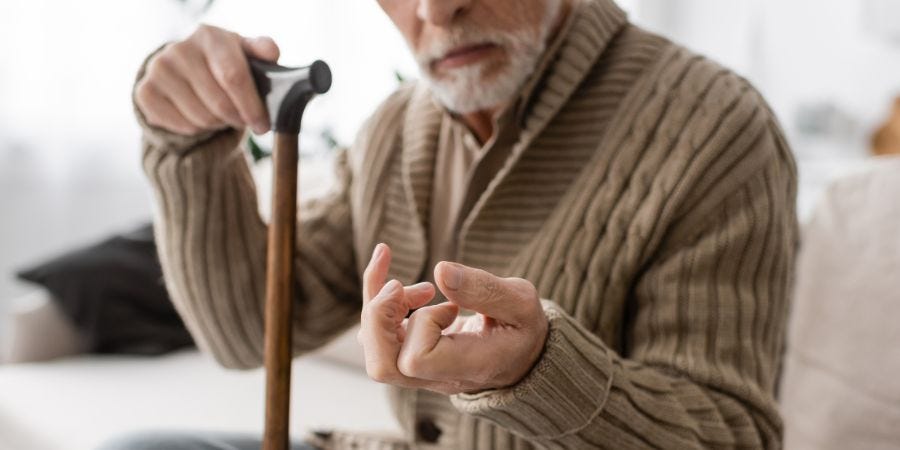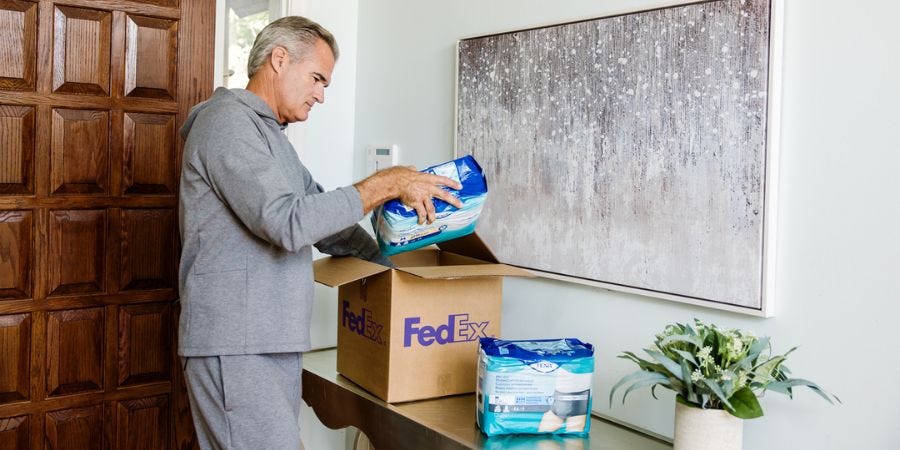Key Takeaways:
- As men age, declining testosterone levels lead to physical and emotional symptoms known as andropause or male menopause.
- Andropause weakens pelvic floor muscles, increasing the risk of urinary incontinence, an aspect of men’s health that’s frequently not addressed.
- Seeking treatment for andropause and urinary incontinence symptoms is crucial for improving your quality of life and preventing complications.
As men age, they may experience something called male menopause. This gradual decline in testosterone levels can bring about a range of symptoms, from subtle changes in mood to more noticeable effects, like decreased libido and muscle mass.
Understanding the causes and symptoms of male menopause, as well as its relationship with conditions like urinary incontinence, is crucial for maintaining overall well-being as you age.
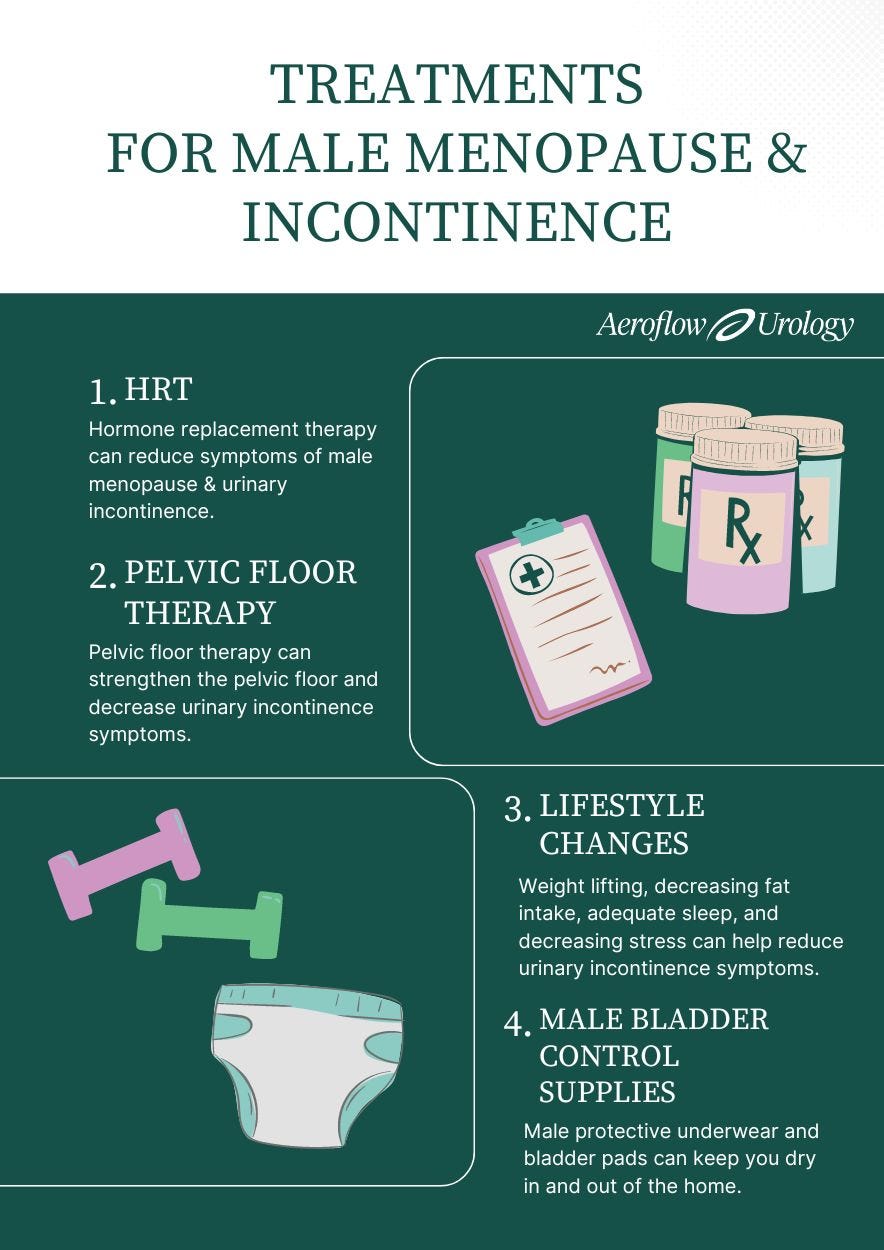

Jump To:
Why Do Men Experience Low Testosterone?
Causes & Symptoms of Male Menopause
How Does Male Menopause Relate to Urinary Incontinence?
Risk Factors of Male Menopause & Urinary Incontinence
How Common is Urinary Incontinence During Male Menopause?
Treatments for Male Menopause & Urinary Incontinence
Why Is It Important to Treat Urinary Incontinence in Men?
How to Get Male Bladder Control Supplies Covered by Insurance
INCONTINENCE PRODUCTS THROUGH INSURANCE:
Aeroflow Urology is in-network with many Medicaid and Medicaid-managed insurance plans and is accredited by Medicaid. Complete our Eligibility Form, and we’ll automatically check to see if your plan covers incontinence supplies. ***Must meet certain requirements to qualify.***
You will also receive the care and attention every person managing incontinence deserves: A personalized list of 100% insurance-covered incontinence supplies, a dedicated Continence Care Specialist you can contact during business hours, a user-friendly online portal for easy monthly reordering, and educational content.
Get the continence care you need with the dignity you deserve. Join the Aeroflow Urology family today! It only takes 5 minutes to get started.
Check Your Eligibility
In Under 2 Minutes
Discover the men's bladder control supplies available through your insurance plan.
What Is Male Menopause?
Male menopause, also called “manopause” or andropause, refers to the gradual decline in the hormone testosterone as men age. Andropause is age-related and can occur during your late 30s and early 40s.
Why Do Men Experience Low Testosterone?
Subtle declines in male hormone levels naturally occur in older men as they age. However, andropause occurs when hormone production levels are below your lower threshold.
These declining testosterone levels are caused by hormonal irregularities, with testosterone being converted to dihydrotestosterone (DHT). DHT is an essential hormone for masculinization, such as prostate growth, genital maturity, and facial hair.
Causes & Symptoms of Male Menopause
Causes
- Aging
- Hormonal changes with increasing sex hormone binding globulin, increased estrogen levels.
- Lifestyle factors and certain health issues (sedentary activity level, high-fat diet, diet high in processed foods, high alcohol consumption, smoking / vaping, chronic stress).
- Excessive body fat or obesity (especially visceral adipose tissue).
- Comorbidities (hypogonadism, diabetes, hypertension, hyperlipidemia, sleep apnea, chronic obstructive pulmonary disease, chronic kidney disease, HIV / AIDS, pituitary disorders).
- Certain medications (chemotherapy, radiation, long-term opioid use, corticosteroids).
Symptoms
Typically, the signs and symptoms of andropause are much more subtle than what women experience during female menopause.
- Sleep disturbances or night sweats.
- Hair loss.
- Mood changes / irritability.
- Fatigue or tiredness.
- Decreased libido or sexual function.
- Erectile dysfunction or erection difficulties.
- Genital atrophy.
- Loss of muscle mass or strength.
- Redistribution of adipose tissue.
- Decreased bone density.
- Cognitive changes, like poor concentration.
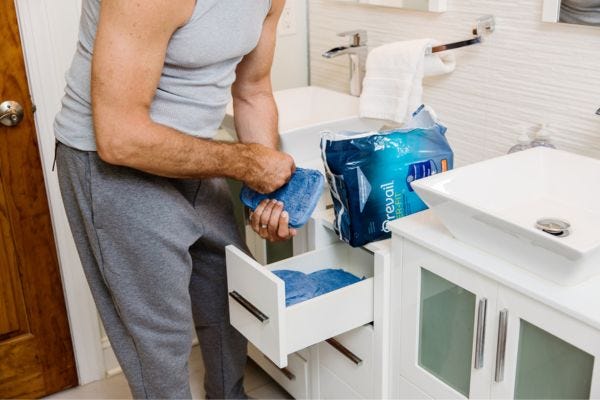

How Does Male Menopause Relate to Urinary Incontinence?
Changes in your testosterone levels cause muscle weakness / loss of tone and decreased functionality in your body and pelvic floor muscles.
Your pelvic floor muscles act like a hammock, holding your pelvic organs in place and helping to control the bladder. When these muscles weaken during andropause, urinary incontinence (loss of bladder control) may occur.
The most common type of urinary incontinence experienced with male menopause is urge incontinence, but stress, overflow, and functional incontinence may also occur.
Risk Factors of Male Menopause & Urinary Incontinence
Sedentary lifestyles can exacerbate symptoms of male menopause and contribute to urinary incontinence. This is because andropause leads to pelvic floor muscle weakness and difficulty supporting the prostate and bladder, which can lead to urinary incontinence.
How Common is Urinary Incontinence During Male Menopause?
While research has shown increased odds of andropause associated with urinary incontinence, not many studies have looked at andropause as being a risk factor for urinary incontinence.
With andropause typically occurring in the 40s and 50s, urinary symptoms are seen in the early 60s. Urinary incontinence significantly increases from around 5% between the ages of 19 and 44 to around 11% between the ages of 45 and 64 and doubles to around 20% of men over the age of 65.
Treatments for Male Menopause & Urinary Incontinence
Treatment options for andropause and urinary incontinence include:
- Hormone replacement therapy (HRT). Addressing low testosterone levels with HRT can be an effective treatment for both male menopause symptoms and urinary incontinence. However, before treating urinary incontinence with testosterone therapy, your healthcare provider should ensure that your levels of testosterone are low.
- Pelvic floor therapy. A pelvic floor physical therapist can assess your pelvic floor muscles and help improve their function, coordination, and strength, reducing urinary incontinence symptoms.
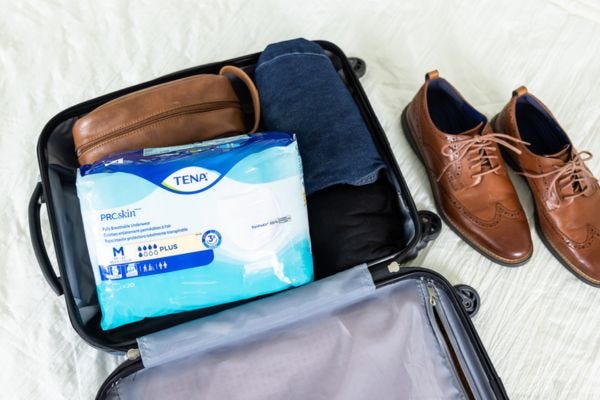

- Lifestyle changes. Increasing daily movement, weight lifting, decreasing fat intake, exercising pelvic floor muscles, getting adequate sleep, and reducing stress can all help improve symptoms of andropause and urinary incontinence.
- Male bladder control products. Managing leakage inside and outside the home can feel embarrassing if you don’t have protective products. Thankfully, your insurance plan may cover male protective underwear and male bladder pads if you’ve been diagnosed with urinary incontinence. We offer some of the highest-quality male supplies; finding out if you qualify for free products only takes about 2 minutes. Complete our Eligibility Form today to find out if your insurance may cover supplies for you.
Why Is it Important to Treat Urinary Incontinence in Men?
While it may feel shameful to speak with a healthcare provider about your andropause or urinary incontinence symptoms, it’s essential to treat these conditions. Long-term effects associated with untreated incontinence can include:
- Social isolation.
- Depression
- Anxiety
- Urinary retention.
- Urinary tract infections (UTIs).
- Kidney disease.
- Other comorbidities.
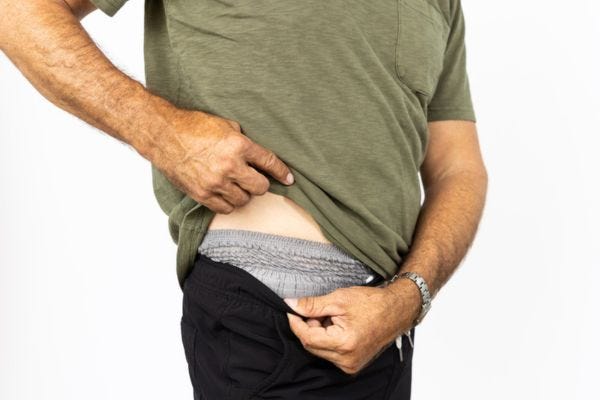

If your healthcare provider dismisses you after discussing your concerns of andropause or urinary incontinence, find another provider who will listen to your concerns and investigate the root of the symptoms.
Addressing the symptoms of male menopause, including urinary incontinence, is vital for maintaining not just physical health but also mental and emotional well-being.
Whether through hormone replacement therapy, pelvic floor exercises, lifestyle adjustments, or the use of specialized bladder control products, seeking appropriate treatment can significantly improve your quality of life and mitigate potential long-term complications.
Remember, discussing your concerns with a healthcare provider is the first step towards effective management, ensuring a healthier and happier journey through the aging process.
Disclaimer
Information provided on the Aeroflow Urology blog is not intended as a substitute for medical advice or care from a healthcare professional. Aeroflow recommends consulting your healthcare provider if you are experiencing medical issues relating to incontinence.


